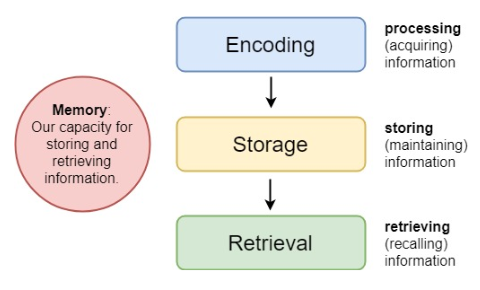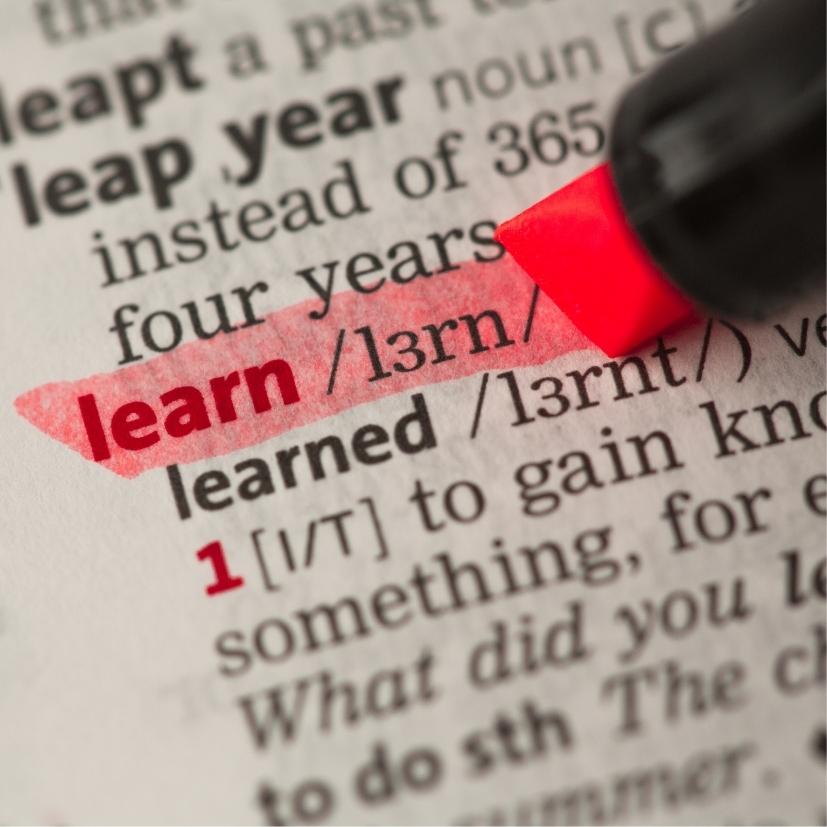How To Learn Portuguese
Top learning strategies to quickly improve your Portuguese
Fruit of more than 15 years of experience in teaching Portuguese, How To Learn Portuguese is a complete guide for anyone who wants to learn Portuguese from scratch or improve their current level.
It brings together the best learning strategies for you to quickly improve your Portuguese in the four skills: listening, speaking, reading and writing.
This guide contains a lot of information, so, I suggest that you always have it on hands, applying the strategies and tips as you progress in your Portuguese studies.
chapters
1 – How not to forget what you studied (go to chapter)
Without concrete memory strategies, language learners can become overwhelmed by the amount of information they’ll be required to remember. The good news is: anyone can train and develop their memorizing abilities.
2 – Vocabulary acquisition (go to chapter)
In this chapter I show you how to learn vocabulary quickly and efficiently. I also show you the type of vocabulary you should focus on to have a good strong vocabulary foundation.
3 – Listening (go to chaper)
Why do learners have such a hard time understanding natives and how to overcome this stumbling block? Learn the best techniques to develop the ability to understand spoken Portuguese.
4 – Reading (go to chapter)
Learn how to practice reading to accelerate vocabulary-building, improve grammar and sharpen writing.
5 – Writing (go to chapter)
How to practice your Portuguese writing and what you need to do to further develop this skill in less time than you might think!
6 – Speaking (go to chapter)
Speaking is one of the most fun and rewarding parts of learning a language. Learn what activities you need to do to develop your ability to speak fluent Portuguese.
7 – Fitting your studies into your routine (go to chapter)
How to practice your Portuguese writing and what you need to do to further develop this skill in less time than you might think!
8 – Bonus (go to chapter)
If you are really serious about becoming fluent in Portuguese, you need to read this!

1 – How not to forget what you studied (go to top)
Many people give up studying a foreign language because they think they have a bad memory.
Fortunately, though, memorizing is not just for an elite group of people born with the right skills, anyone can train and develop their memorizing abilities.
For you to be able to apply memorization strategies well, it’s important that you understand why we forget things.
Memorization consists of three main processes: encoding, storage, and retrieval.
1.1 – Encoding
The process of memory begins with encoding: acquiring or learning new information. When information comes into our memory system (from sensory input), it needs to be changed into a form that the system can cope with, so that it can be stored.
1.2 – Storage
After the information has been encoded, it goes to storage so that we can recall, or use it later. There are two types of storage: short-term memory and long-term memory.
When you first encounter something new, this information goes to your short-term memory. From here, it is either forgotten or, if needed and stored correctly, goes to your long-term memory.
Your short-term memory is at work when you do something like read a list of words and then immediately repeat them. It helps you to quickly obtain the information you need at the moment, while you are performing a task, but it’s highly likely you will forget this information afterwards.
Our long-term memory has a much longer time span (from a few minutes to a lifetime) with practically unlimited capacity. For information to be transferred from your short-term memory into your long-term memory, you need to repeat it or interact with it at least a few times.
1.3 – Retrieval
The final step of the process is retrieval, it refers to getting information out of storage. Basically, there are two different types of retrieval: recall and recognition.
Recognition is a type of memory retrieval that involves identifying information after experiencing it again. For example, taking a multiple-choice quiz requires that you recognize the correct answer out of a group of available answers.
It occurs when you recognize something, you have some kind of clue that helps you retrieve information. Recall involves being able to access the information without being cued, like when you’re writing a text.
You can often quite easily recognize new vocabulary when you are reading a text, but recalling it without any cues when you need to produce it can be much harder.

The Forgetting Curve
Another important concept to understand why we forget things is The Forgetting Curve, also known as the ‘Ebbinghaus Forgetting Curve’. The forgetting curve hypothesizes the decline of memory retention in time. This curve shows how information is lost over time when there is no attempt to retain it.
After you have just learned something, memory retention is 100%. However, it drops rapidly to 40% within just a few days and after that, the decline of memory retention slows down again.
The good news is that, if you repeat or practice something a lot, the information is stored more strongly and the forgetting curve becomes much shallower. After learning something, our memory of it will decline over time unless we review it. The more we review it, the stronger we make the memory, the longer we can remember it.
When exposed to the same content repeatedly, it takes less time to pull the information from your long-term memory. And here is where most language learners fail: they don’t have the patience to review, they don’t give the brain time to retain what they’ve studied.

2 – Vocabulary acquisition (go to top)
Languages are made of words, the more words you know, the more things you can talk about. It’s no use just having good pronunciation, good listening and good grammar knowledge, if your vocabulary is poor, period!
Ok, but what are the effective ways of learning vocabulary? I’ll show you 4 powerful strategies to memorize vocabulary in an efficient way.
1) Learn words in context
A good idea to learn more words faster is to learn them in context: Instead of writing lists of random words, try to put them in sentences. But be careful, without any context, memorizing lists of vocabulary is extremely counterproductive.
You won’t remember the words for very long if you don’t use them and they are not meaningful. You can learn many words, maybe 10 to 15 new words a day. But if you don’t use them, you will forget them in a short period of time.
2) Prioritize vocabulary
The biggest potential risk of actively trying to learn lots of vocabulary is that you end up wasting time learning words that realistically you will rarely use. I always recommend learning words that directly relate to your situation, and prioritize the ones that you know you will have to use; everyday situations vocabulary is a great start.
Many of my students want to learn Portuguese to have a better experience during their trip to Brazil. If this is your case, then you should focus on learning words and expressions that are useful in travel context, for example: transport, shopping, ordering food, hanging out etc.
3) Learn language chunks
According to Michael Lewis (The Lexical Approach), the focus of learning a new language should be on learning vocabulary. He believes that the ‘largest bulk involved in learning a new language is the vocabulary, and more specifically, vocabulary chunks. The term ‘chunk’ refers to a group of connected words that are treated as single concepts.
Also known as lexical phrases and collocations, language chunks are groups of words that naturally go together – they are fixed expressions and they can’t usually be changed. So instead of learning them word by word, we can think of them as one complete piece of language.
Chunks play a crucial role in language learning. Learners can engage in conversations using chunks as unanalyzed wholes, see some example:
- Bom dia! – Good morning!
- Como vai você? – How are you?
- Com licença. – Excuse me.
- Obrigado. – Thank you.
- Não há de quê. – You’re welcome.
The grammar of these phrases is not so important, so you can easily learn them even if you don’t understand how they are made grammatically. There are also chunks that can be used as templates to generate new utterances:
- Eu estou com vontade de dançar. (I feel like dancing.)
- Eu estou com vontade de dormir. (I feel like sleeping.)
- Eu estou com vontade de comer chocolate! (I feel like eating chocolate!)
Now you understand why chunks are important for fluent production.
4) Use apps to help memory
There are many apps that help us memorize vocabulary. But, to tell you the truth, the two apps that are really worth investing your time are Anki and Quizlet.
Anki is the best Spaced-Repetition System. Spaced-repetition works by presenting you with information right before you forget it to make sure that it stays fresh in your mind. You don’t mindlessly repeat information over and over again; you repeat it across increasing intervals of time.
For example, say, you’ve learned some Portuguese greetings before your trip to Brazil. You repeat them a few minutes later, then a few hours, then a day, then a few days, then a week…
Spaced-repetition “fights” the forgetting curve and trains your brain so you can recall information at longer intervals.
Anki Pros:
- It uses spaced repetition;
- For android and desktop users it’s completely free;
- Easy and completely free to use offline;
- There are loads of add-ons available so that you can customize your learning experience.
Anki Cons:
- The app/desktop program has a very clunky and old fashioned feel to it and isn’t very intuitive;
- Only one standard study mode which can get repetitive and boring;
- For iOS users you have to pay $25 for lifetime use;
- Syncing between desktop version and mobile version isn’t automatic.
Quizlet is a free website and app providing learning tools for students, including flashcards study and game modes. Regardless of whether you use Anki or Quizlet, you need to take 3 things into consideration:
- Avoid information overload, create a maximum of 15 cards for each deck;
- Instead of writing isolated words, make short sentences, focusing on a structure or topic. Remember, always put words into context;
- Make sure these phrases are correct and they are actually used in the context you use them (ask a teacher or a native speaker to check them).
Now, I want to show you a practical example of how to create a deck. Imagine that you want to learn the verb IR (to go) in the simple present tense. See my suggestion:
- Card 1: Eu vou para a praia -> I’m going to the beach.
- Card 2: Você vai para o supermercado -> You’re going to the supermarket.
- Card 3: Ele/ela vai para o museu -> He/she is going to the museum.
- Card 4: Nós vamos para o teatro -> We are going to the theater.
- Card 5: Vocês vão para a loja -> You’re going to the store.
- Card 6: Eles vão para a biblioteca -> They are going to the library.
It’s the perfect combination! You learn personal pronouns, articles, the simple present structure and locations at once. And speaking of verbs, always try to put them in your sentences.
Remember that verbs in Portuguese are conjugated by person and number, meaning that you’ll have to memorize 4 different endings for each verb that you learn. If that’s not enough, the conjugations can be different depending on whether the verb ends in -ar, -er, or -ir. And even further, verb tenses (e.g., past, present, future) are all conjugated differently.
It’s no wonder that memorizing conjugations is one of the greatest stumbling blocks for Portuguese learners!
Meet Your Teacher

I’m from São Luís – Maranhão and I’ve been living in São Paulo since 2015. I have a degree in Modern Languages, I’m a specialist in Portuguese Language, a specialist in Distance Education and an Instructional Designer.
My Portuguese teaching experience started in 2002, when I lived in Geneva, Switzerland.
Besides Portuguese, I speak English, French and I’m currently learning German.
Learn more about me and my work on my YouTube channel:

Listening is the skill you need to focus the most when you are learning a language, why?
Because “It is a complex, active process in which the listener must discriminate between sounds, understand vocabulary and grammatical structures, interpret stress and intonation, retain what was gathered in all of the above, and interpret it within the immediate as well as the larger sociocultural context of utterance. Co-ordinating all of this involves a great deal of mental activity on the part of the listener. (VANDERGRIFT)”.
For all its importance, students and even teachers often fail to give listening the attention it needs. And when it comes to Brazilian Portuguese, things can be even more challenging… Brazil has several accents.
But don’t worry! I’ll show you how to overcome all that. Before I give you practical tips to improve your listening, you need to understand the importance of Comprehensible Input.
Input is language that the student either hears or reads that aims at communicating something, is what you’re putting in your ears and eyes, whether it be audio, video or written language.
For input to be comprehensible, it must be in the form of meaningful language which students can understand with the help of embedded context, even though they don’t fully understand the meaning of each word.
When using comprehensible input, the teacher uses a language that is slightly higher than the level of the students (see Krashen i + 1 theory), allowing for students to “fill in the gaps” of specific words or structures they don’t understand, aided by contextual cues.
Comprehensible Input always activates prior knowledge so that students can benefit from connections they can make to the content they will be learning and have a clearer understanding of what is being said, even if they don’t understand all the words.
Comprehensible input creates an atmosphere where the students can figure things out by themselves using the context and background provided. This helps students create a higher engagement with the language and deepens students’ understanding, retention and motivation.
Listening tips:
1 – Expose yourself to lots of input, always taking into account the comprehensible input.
2 – Find something interesting or entertaining and listen to it repeatedly throughout the week – while you’re driving, riding the bus, washing dishes, etc.
3 – Prefer resources that come with transcripts and key vocabulary (check out my podcast) to help make it more accessible.
4 – While listening, don’t worry if you don’t understand everything; understanding the main idea is usually enough. You hear the recordings twice, so don’t worry if you miss the answer the first time.
5 – Practice in chunks. For example, listen to a 2 minute chunk of a podcast – then check understanding and continue listening to the next 2 minutes, and so on. Try this two or three times and then relax and listen to the rest of the text.
6 – Experiment with different accents. There are several accents in Brazil, just to give you an idea, the word ESTUDANTES can be pronounced in 4 ways.
7 – Sing your favorite Brazilian songs. This is a tried-and-true language learning method that’s backed by science.

Reading is a great way to expand your vocabulary in a new language. We learn to write better when we are in the habit of reading. Reading offers students a wider range of vocabulary and grammar, it essentially supports and feeds the brain with the correct language structures.
As learning is facilitated by visual cues, reading helps the brain to remember these language structures as the learner will connect an image to the word it represents. Those who read a lot have a good vocabulary, exercise their text interpretation and learn grammar rules without realizing it.
The trade secret is to diversify and practice the two types of reading: intensive and extensive.
Intensive reading is where you read to learn new words and phrases and to analyze grammar. You pause when you don’t know a word or when you want to study grammar.
Extensive reading is when you read for fun. You don’t stop to look something up. Instead, you continue reading like you would in your own language.
Regardless of the type of reading, start with content that interests you, don’t waste your time reading something that you find boring. Pick up materials that you can understand (remember, Comprehensible Input), there is nothing more frustrating than reading something that is too difficult.
Choose something short to read, no more than a few paragraphs. This can be a story, a news article or anything you want. I suggest you choose something that doesn’t take more than 3 minutes to read.
Here is a method that includes both intensive and extensive reading. This will help you learn new words and phrases and will improve your grammar knowledge too:
- Read extensively but highlight vocabulary/grammar that you don’t understand or that you want to learn;
- Keep reading for one chapter or for a certain number of pages – again don’t stop to look anything up yet;
- Once you have read a chapter, go back and look up words you don’t understand or grammar that you want to learn;
- Read it again, sometimes reading a text just once isn’t enough to understand it. Rereading is great for those times when you read the words but can’t get them to make sense. It’s also great for finding things you might have missed the first time.

5 – Writing (go to top) ⬆️
Writing in your mother tongue is no longer an easy task, especially if your writing requires a little more formality. Now, imagine doing that in a foreigner language!
Yeah, it’s challenging, but with persistence, dedication and the right strategies, you can improve your written Portuguese in less time than you might think. Believe me, I see this happening very often, mainly with students who are going to take the Celpe-Bras exam.
My top tip is: start with small pieces. The ideal is to begin with a short and simple piece of writing. Start slow and simple and work your way up to longer and more complex writing pieces.
Two suggestions for short, easy-to-do texts:
- Write your calendar in Portuguese. Write down what you have planned for the next few days for the week. By putting this habit into practice, over time, you will master how to say frequent everyday actions.
- Keep a diary in Portuguese. Write about your thoughts, impressions and insights you had along the day as well as interesting things that happened to you.
To put that strategy into practice, it’s recommended that you have a basic knowledge of Portuguese structures (A2). See in the video below, how to identify your Portuguese level:
But, Ricardo, how do I know if what I wrote is correct? Good question!
Try to get someone to read what you’ve written, a teacher, a tutor, a native speaker: whoever masters the language and can help you understand and correct whatever mistakes you may have made both in grammar or spelling and in the way your paragraph text has been organized.

Most language learners find speaking their new language an unattainable task. What if you get something wrong? Will people be offended that you’ve massacred their language? Will they think you’re stupid and laugh at you?
No one will call you stupid or laugh at you because of your grammar mistakes and accent. In most cases, you’re the one left laughing at any mistakes you’ve made, and natives are just thrilled to see that you’re trying.
In addition to that, Brazilians are very receptive and solicitous when they see a foreigner trying to communicate in Portuguese. Why be afraid to speak?
Speaking a foreign language is not just about communicating, it’s about making connections too. As Nelson Mandela used to say: “If you talk to a man in a language he understands, that goes to his head. If you talk to him in his own language, that goes to his heart.”
That’s why practicing speaking is one of the most fun and rewarding parts of learning a language. If you don’t live in Brazil, it might not be easy to find Portuguese speakers to practice with. But this cannot be a barrier for you to put out your Portuguese.
Here are my top tips for improving your spoken Portuguese and having a great time while you do it!
Talk to yourself out loud
It may seem strange at first, but talking to yourself about the material you are trying to memorize can be an effective memory tool. Try speaking loud instead of simply highlighting or rereading information
Practice pronunciation
Your lips, mouth and throat are used to produce the English sounds, so you have to reprogram it to produce the Portuguese sounds, mainly the nasal ones.
You will only speak Portuguese correctly if you train your muscles to produce the Portuguese sounds and the best way to do this is by practicing, repeating, practicing… My pronunciation series on YouTube is a great starting point!
Learn your most common sayings
What words and phrases do you use the most often? Learn how to say the most commonly used phrases and words in Portuguese, like: “Desculpe”, “por favor”, “meu nome é”, “com licença”, “obrigado”, “eu gosto de”, “fale mais devagar”…
Memorize and sing your favorite songs
Besides being a fun way to improve speaking, songs are also a great source of ‘real-life’ language.
Prepare for specific situations
If you’re preparing to go to a restaurant, which phrases do you need to know? Answer the questions a waiter might ask you. Try talking about food and menus. Before you go to a place where you have to speak Portuguese, you can practice what you might have to say, focusing on the ins and outs of these situations in Portuguese.
Do interesting activities in Portuguese
Take a cooking course in Portuguese or join a book club! Anything you enjoy doing, make sure you do it and communicate it in Portuguese.
Find a partner
Find a friend or two and agree to speak Portuguese at certain regular times during the week. Choose a person/teacher whose accent you admire, and if you can get recordings of him or her, imitate the way he or she speaks.
Get feedback
Get someone to check your pronunciation and intonation, or record yourself and analyze your own speech. Set goals for specific things you can work on improving. Keep notes of words you often mispronounce and practice them.
Speaking is a skill like learning a musical instrument or a new sport – the only way you can get good is to actually do it! So, do not be shy to make mistakes! The more you practice the better and more confident you will become.

7 – Fitting your studies into your routine (go to top) ⬆️
Now it’s time to learn how to fit your studies into your daily life. After all, you don’t want to abandon life to learn Portuguese. You want your studies to be part of your day without having to give up your chores, right?
With the tips I’m going to give you, you’ll be able to reach your learning goals, even if you have a hectic routine.If you work the whole day, you probably have only one shift free, probably at night. Perfect, this is more than enough!
In fact, you just need to dedicate at least 30 minutes of study and 30 minutes for reviewing along the day, that’s to say, you just need 60 minutes of your day to learn Portuguese or any other language.
And the best part is: you can break this hour down into three slots along the day. Here’s my suggestion:
1 – Around lunch – 30 minutes (study)
This longer session should be used for learning new information and moving further along with your course and study materials. This is when you should feel more active, focused and productive. You can also use this time to do homework and exercises.
2 – Around dinner – 15 minutes (review 1)
This is your first chance to look back at what you covered at midday. Make sure the rules and vocabulary you learned are all still fresh in your head, and try again to learn the ones that have been missing. You will get a chance to review again the next morning. Tip: avoid studying in bed or in a place that is too relaxing, as this will invite you to sleep, especially if you’ve had a tiring day.
3 – Around breakfast – 15 minutes (review 2)
Look over your notes from the night before and see how much you remember after a night’s sleep. Anything that is still causing problems should continue to be prioritized in the following sessions.
Take every single moment to study, to review, to listen: waiting for lunch to be ready, on the bus, before a meeting, after dinner, some minutes before you go to bed… If you make this a routine, you’ll have studied at least 1 hour each day!
It seems little, but I can guarantee you that if you keep to this pace, you will get great results in a short time.
And that’s what I really want to happen to you. 😃

8 – Bonus: Be active! (go to top)
I strongly believe that these are the 5 factors that make for efficient language learning:
- Motivation;
- Consistency;
- Patience;
- Learner’s attentiveness;
- Active learning.
Let’s see Active Learning in detail.
Studies suggest that around 60% of learners are ‘passive’ learners, only 10% are ‘active’ learners, and the remaining 30% are ‘blocked’.
If you are really serious about becoming fluent in Portuguese, then you have to prioritize active learning activities as much as you can.
Active learning occurs when you sit down with the express intention of learning, such as:
- Reading and actively looking up words and phrases you don’t know;
- Writing a diary in Portuguese;
- Chatting with natives on WhatsApp or Facebook groups;
- Listening to podcasts and doing things like transcribing and shadowing;
- Creating your own vocabulary flashcards;
- Speaking with natives and trying to use your new expressions;
- Listening to native speakers in conversations and listening very carefully to exactly how they use certain verbs, words, expressions…







